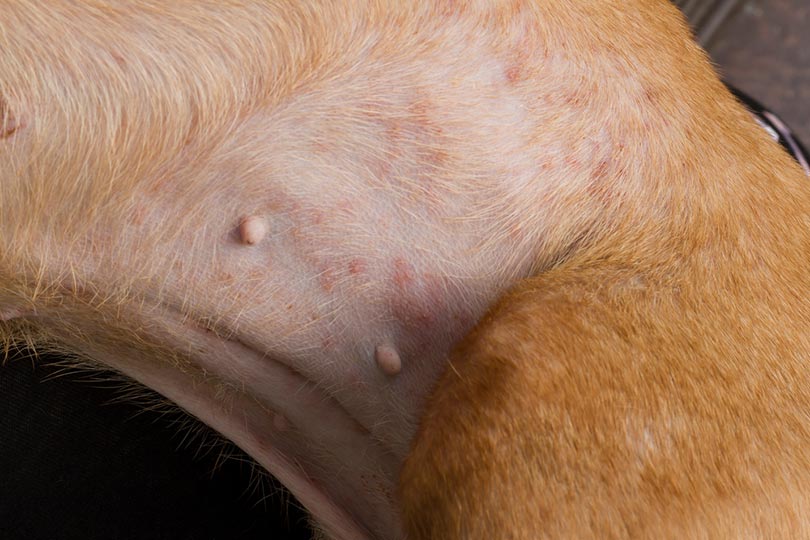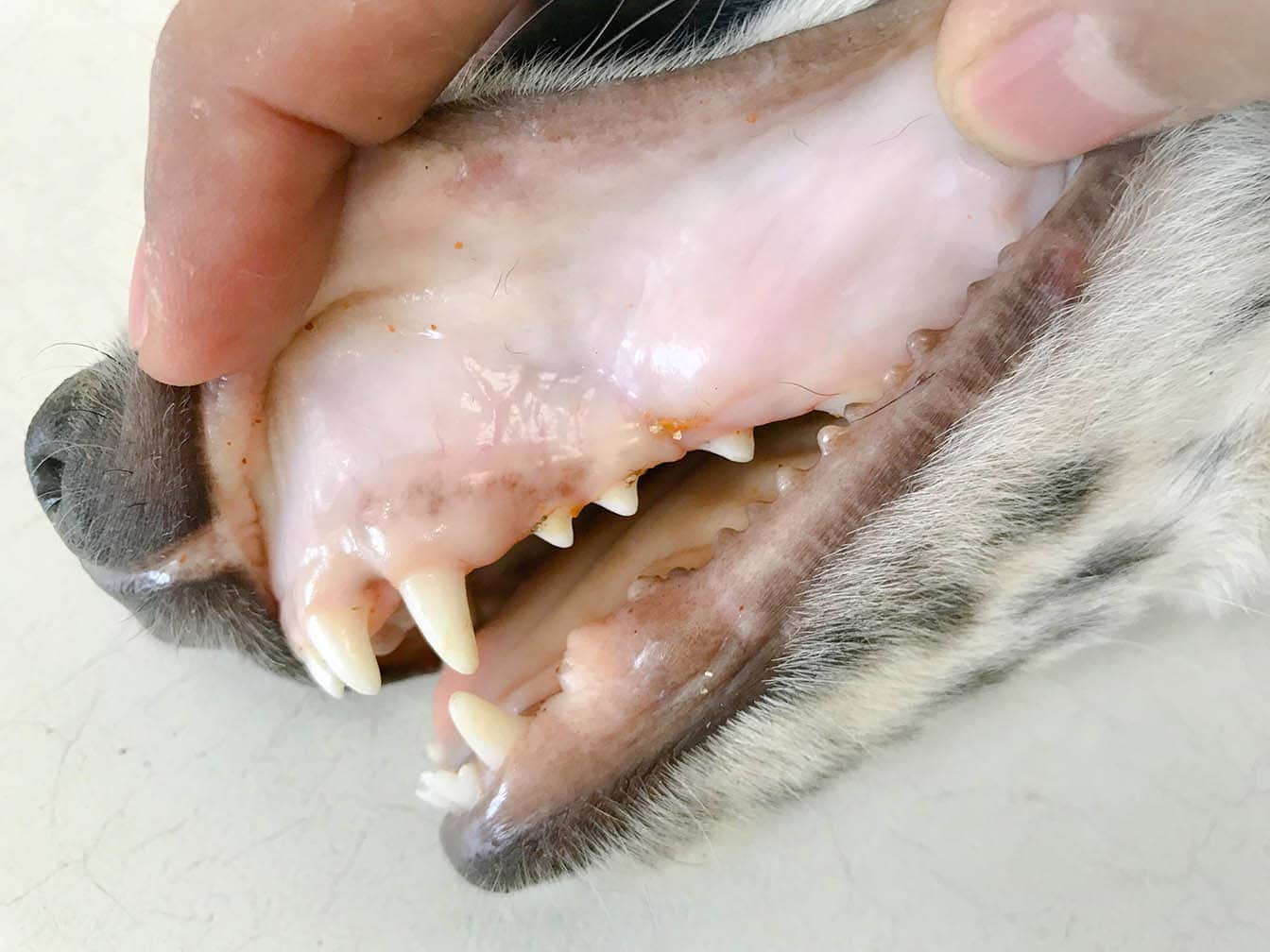Can Neutered Dogs Still Mate? Vet-Aproved Facts & FAQ
By Hanh Duong
Updated on

Click to Skip Ahead
Have you ever wondered if neutering your pet means you’ll never have to worry about their sexual behavior again? It’s a common misconception. Although a castrated dog is unable to reproduce, it doesn’t necessarily mean they’ll stop enjoying a little bit of humping now and then, and even neutered females will engage in this behavior, though this is often a display of dominance, rather than sexual gratification.
It would be unusual for neutered dogs to engage in the complete mating process, but some may go through some of the motions. If your male dog has only recently been neutered, you will need to be extra careful for a time after their surgery. Read on to find out more about the sexual behavior of neutered dogs.
What Is Neutering?
Neutering is a surgery that involves the removal of the vital reproductive organs in dogs. We often see the terms “spay and neuter” when referring to sterilizing pets, but they are not actually separate things. Spay and castration are how cats and dogs are neutered; Neuter = sterilize.
In females, this means the ovaries and uterus is removed (ovariohysterectomy), which stops the production of estrogen and progesterone, as well as any chance of producing puppies. More recently, some vets are using laparoscopic procedures to only remove only the ovaries (ovariectomy). Both procedures achieve the same result, and studies have shown that, apart from scar size, there are no measurable advantages of one surgery over another 1.
For males, neutering involves the complete removal of the testicles, which means no more sperm production and a decrease in testosterone levels.
However, it’s important to note that it may take up to 6 weeks for a male dog to become infertile after neutering, as sperm can be stored for a short time in the remaining reproductive tract. This means that if a recently castrated male dog were to successfully tie (mate) with an entire female, they could still father puppies.
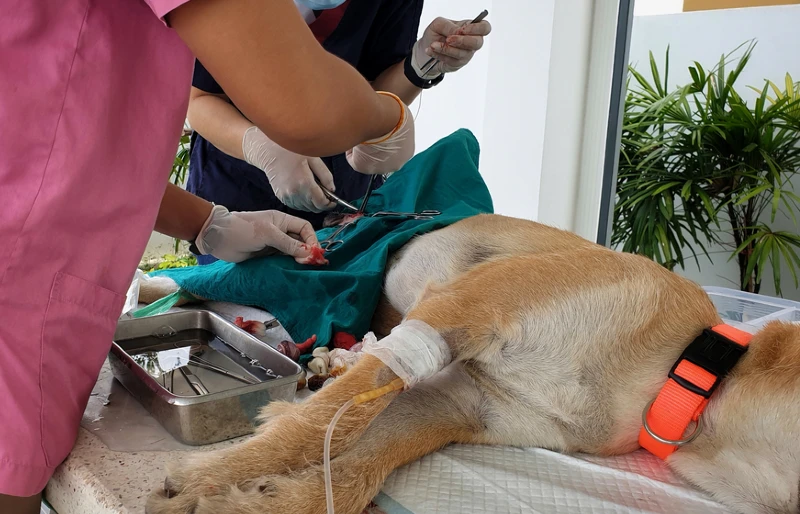
Is It Possible for a Neutered Dog to Mate?
In a nutshell, if he wants to, he can still mate. However, we must consider when and how long ago he was castrated. His penis won’t fully develop if he was castrated relatively young, such as before or just after reaching maturity, meaning that it might not be long enough to perform proper intromission during mating. In addition, the bulbus glandis (or “knot”) will be small, making it unlikely that he can lock. But this is untrue for dogs that had their castration performed later, at or after the end of puberty.
The likelihood that the dog will get an erection under any given set of conditions will, however, steadily decrease over time as a result of low testosterone levels, which will also cause a loss in both sexual drive and penile function.
Females are only receptive to mating when they are in estrus (in season), so without the hormones to drive this behavior, it would be rare for a neutered female to allow a male to mate with her.
How Do Dogs Change After Neutering?
Many traits, including hostility toward other males and urine marking, are typically lost or reduced due to neutering. Many people, though, think that castration makes dogs less hyperactive. In actuality, castration only affects hormone-driven behaviors. These actions do not abruptly halt following the surgery. Instead, they gradually fade away over several weeks.
Castration can, however, help train the hyperactive dog, as it removes one component of their excitement and distraction, improving focus on you and the rewards you offer.
A castrated dog can still become excited, have an erection, and mate with a female in heat. But it should be noted that not all castrated pups will wish to do this.
The dog’s libido declines along with the testosterone levels. However, the neutering process doesn’t seem to change the libido of some canines. Any male dog, intact or neutered, may still be attracted to a female in estrus, and mounting and breeding activities may still occur, but this is more common in dogs that were castrated later in life, particularly if they had quite a high libido to begin with.
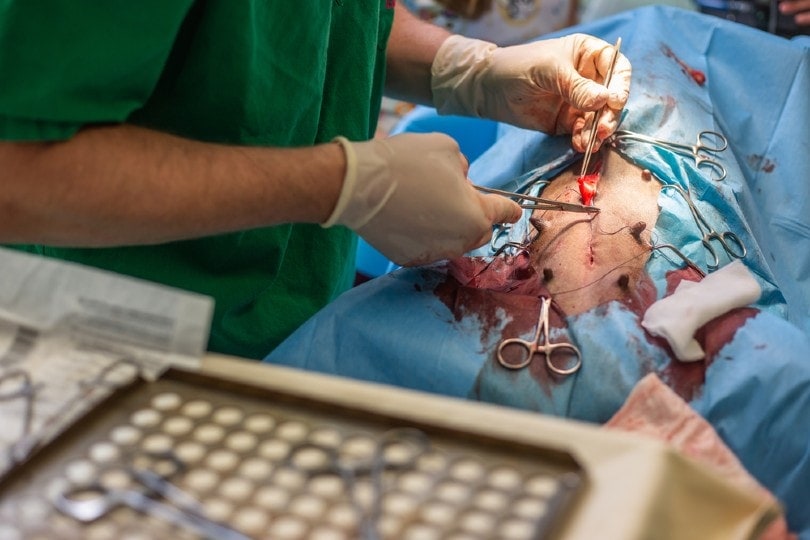
Can a Neutered Male Dog Impregnate a Female Dog?
Within a window of time following castration, a dog can typically still breed with a receptive female. This is because active sperm is not exclusively kept in the testicles. In reality, the male reproductive system contains viable sperm in multiple storage locations. The sperm may theoretically remain in these places for up to six weeks. This occurrence is referred to as “dormant sperm.”
Therefore, a dog can theoretically still reproduce if it has been less than six weeks since the castration. Once that window has closed, the dog can still mate, but there won’t be a pregnancy.
When Should a Dog Be Castrated?
Although you can have your puppies neutered when they are around six months old, it is better to wait until after they have reached sexual maturity. Research shows that neutering after puberty can help prevent certain cancers and orthopedic health problems in certain breeds, and improve their behavior.
The age of sexual maturity in dogs is generally associated with breed size, with smaller dogs usually reaching this point between 6-9 months, and larger or giant breeds achieving full maturity between one and two years of age.
Further research is being done to compare differences among breeds and dog sizes, so it is best to discuss the timing of castration with your vet.
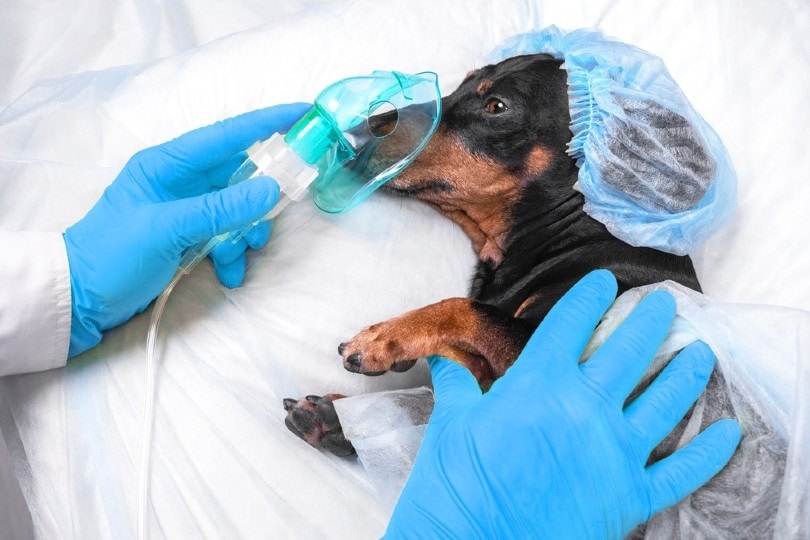
When Should a Dog Be Spayed?
If you have a female puppy, it is usually recommended to spay them just before or 3-5 months after their first heat.
- Spaying before the first season eliminates risks of uterine infection (pyometra) and pregnancy, and reduces the risk of mammary tumors to less than 1%.
- Spaying after the first season does carry the risk of pregnancy, very low risk of pyometra, and increases the risk of mammary tumors to around 8%. This risk increases steadily to 26% and more after the second season.
- As with males, females reach sexual maturity at different ages. There is evidence to suggest that spaying too early in her development can increase the risk of incontinence due to urethral sphincter mechanism incompetence (USMI), but there is conflicting evidence over whether this risk is reduced by having a season, or just waiting longer in larger breeds.
- Female dogs that have had puppy vaginitis should always be spayed after their first season
If you decide to neuter your dog, it’s best to talk to your vet to determine the right age for the procedure.
What Is the Recovery Period Following Dog Neutering?
Most dogs can go home on the same day of the procedure without complications or other health issues. Your veterinarian will provide instructions on pain medication and aftercare for them.
You have to restrict your dog’s activity for a few days while the incision heals. To prevent your dog from licking the incision, the clinic may send him home with a protective collar or suit. As with any surgery, your vet will schedule a follow-up visit to check on the incision and remove the stitches.
In most cases, the most challenging part of this recovery period is trying to convince your dog to take it easy after surgery!
FAQ
Can Dogs Get A Vasectomy?
You may have heard about ferret vasectomies, and wonder if dogs can have them too? Although technically the answer is yes, there is zero benefit to having this done. Female ferrets are ‘induced ovulators’ and can suffer life-threatening health conditions if spayed or not mated. Allowing them to ‘mate’ with a vasectomized male allows their bodies to go through the hormonal motions without producing lots of ferret babies.
A vasectomized dog will still have all the behavioral and physical risks of an uncastrated male (testicular cancer, prostatic enlargement, fighting, straying, dominance issues). The only difference is that their mating won’t result in pregnancy. There are very few instances where a vet will perform a vasectomy on a dog.
What Are Testicular Implants?
Neuticles were developed by a (now very rich) man called Gregg Miller who was sad that his dog, Buck, would no longer look like a buck after his castration. This led him to develop a canine testicular prosthesis, trademarked Neuticles. Astoundingly, nearly half a million Americans have had their dog “neuticled”, a procedure which provides absolutely no benefit to the dog. Dogs assess the reproductive status of other dogs using pheromones, and will not be fooled by a scrotum full of silicone. Which leads us to wonder why some dog owners are so concerned about the visible appearance of their dog’s testicles!
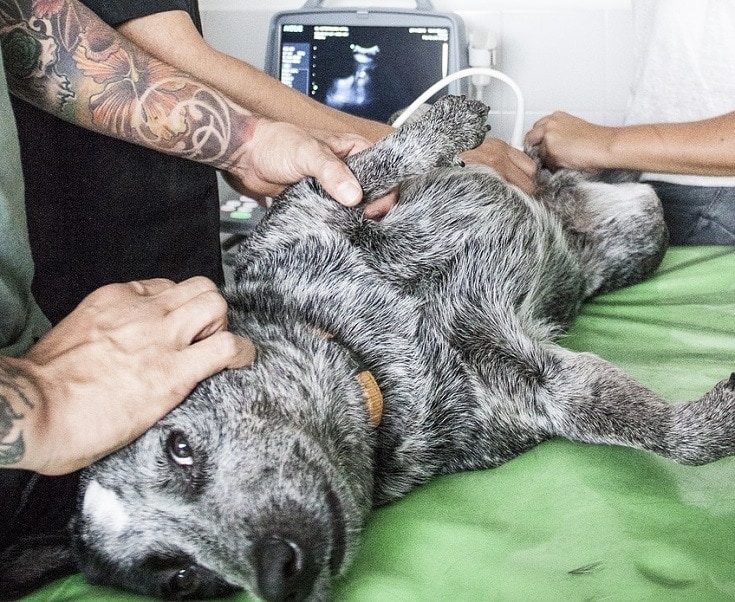
Why Is My Female Dog Allowing Dogs to Mount Her?
In rare cases, some females will allow this activity out of enjoyment. However, if you notice that your spayed female is showing other signs of estrus, like a swollen vulva or vaginal discharge, it is possible that she could have ovarian remnant syndrome. This is where a fragment of the ovary may have been left behind, or there are extra-ovarian cells in the tissue that surrounded the ovary. This won’t result in pregnancy, but if your dog does have ovarian remnants, she is at risk of mammary tumors or pyometra (if she only had an ovariectomy procedure). If you are worried that your dog could be experiencing these signs, talk to your vet.
Can Dogs With Retained Testicles Still Mate?
Definitely. If one or both of your dog’s testicles are retained, a condition called cryptorchidism, they can still be fertile. Inguinal cryptorchidism is where the testicle is located outside the abdomen, but has not made it all the way to the scrotum, sitting somewhere between the prepuce and the groin (inguinal area). If the testicle/s remain within the abdomen, this is called abdominal cryptorchidism. Cryptorchidism is highly heritable, which means that affected dogs are very likely to have puppies with the same condition.
Because the retained testicle is less able to be kept at the ideal temperature, cryptorchid dogs may have reduced fertility, but they can still mate and father pups. Additionally, retained testicles have a much higher risk of torsion, pain, and cancer, so removal of both testes is strongly recommended, both for the health of the dog, and to reduce the prevalence of the condition in future generations.
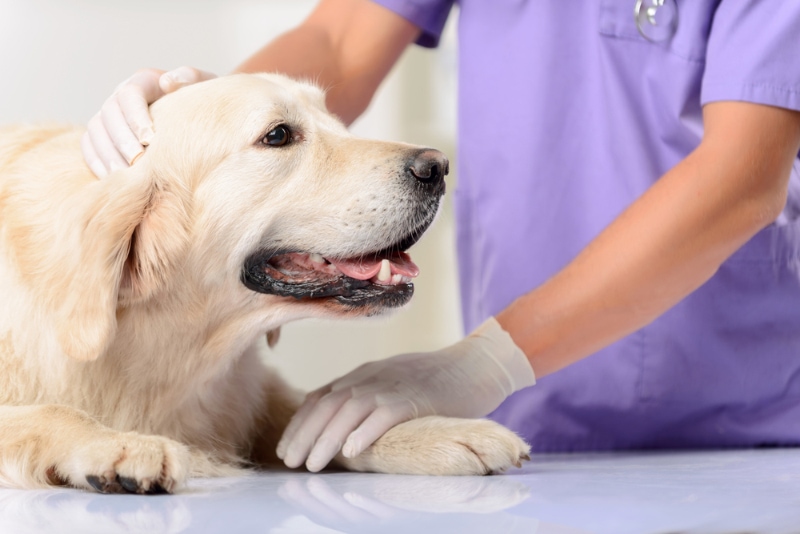
Are Neutered Dogs More Likely To Get Fat?
Not necessarily. The metabolic rate of a neutered dog is a lot lower than that of an entire dog, so if you continue to feed your dog the same amount of food after they have been neutered, yes, they are likely to gain weight.
As a general guide, reducing your dog’s calorie intake by 10-20% once they have been neutered can help offset their change in metabolism. You can do this by simply cutting down their portions, or by replacing part of their food with some vegetables.
Conclusion
Male dogs can still engage in sexual behavior even after they have been neutered, and do have the potential to impregnate a female within the first few weeks of castration. While many castrated males will still engage in a bit of humping, this is usually a show of dominance or just for enjoyment. It is uncommon for a neutered male to fully engage in the process of mating.
Neutered females will also hump on occasion, but it would be very unusual for them to accept the sexual advances of a male, unless they have retained ovarian tissue.
So now we know that neutered dogs can still mate, this activity is usually about self-satisfaction or dominance, and rarely results in the mating tie. If you are worried that your dog is displaying signs of unusual sexual behavior, talk to your vet.
Featured Image Credit: atiger, Shutterstock






